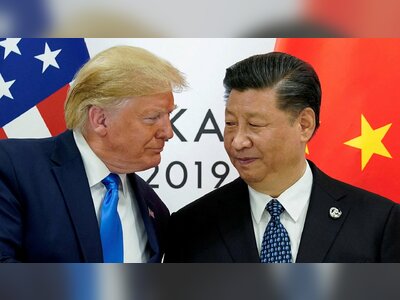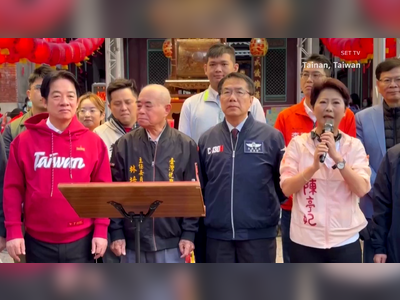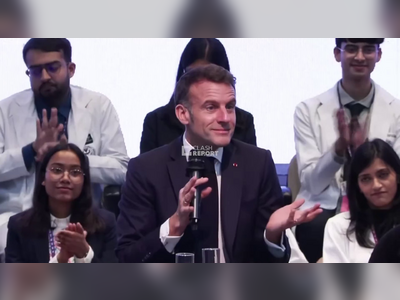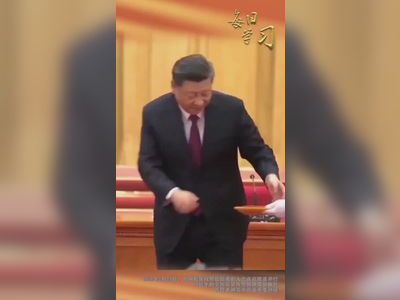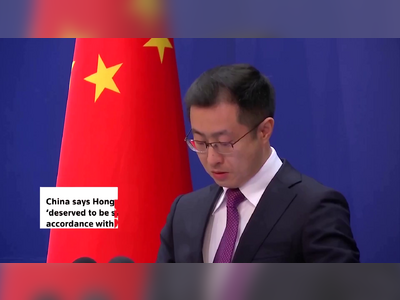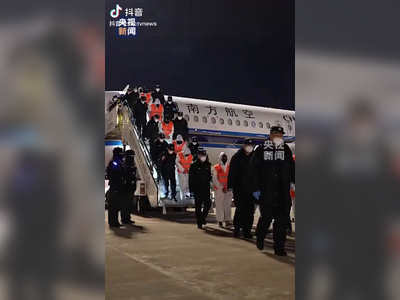Tech Industry Condemns Biden's AI Chip Export Restrictions as a Threat to U.S. Tech Dominance
New rules impose worldwide restrictions on AI chip exports, sparking concerns over America's global competitiveness just before presidential handover.
In a contentious move that has sparked significant backlash from the U.S. tech community, the Biden administration has unveiled comprehensive regulations on AI chip exports.
These rules, aimed at tightening control over the export of advanced computing technology, are set to reshape the global landscape of artificial intelligence development and commercialization.
Announced merely days before the transition to President-elect Donald Trump, the regulations have drawn sharp criticism from leading technology companies and industry advocates.
John Neuffer, president of the Semiconductor Industry Association, expressed profound disappointment, highlighting the lack of industry consultation in the rule-setting process.
He cautioned that these restrictions could inflict irreversible damage on America's economic interests and its standing in the burgeoning field of AI technology.
The 200-page document outlines a stringent framework that introduces sweeping licensing requirements for the export of high-performance AI chips, particularly graphics processing units (GPUs) that are integral to AI capabilities.
The regulations stipulate that only 20 ‘trusted’ nations, including allies like the United Kingdom, Japan, and Germany, will be largely exempt from these constraints.
In contrast, other significant U.S. partners such as Israel, Singapore, Brazil, India, Saudi Arabia, and the United Arab Emirates face stringent export caps under the ‘Low Processing Performance’ category.
These limitations have provoked concerns over the potential disruption to international trade in AI technology and the broader tech industry.
Ken Glueck, Executive Vice President of Oracle, highlighted the unprecedented scale of these regulations impacting the global cloud computing sector.
For the first time, public and commercial cloud services are subject to rigorous compliance with U.S. standards, traditionally reserved for federal data management — a move seen as potentially stifling for data centers worldwide.
The influential voice of Ned Finkle, Nvidia's vice president of government affairs, underscored the burdensome regulatory oversight these rules would impose on American semiconductor enterprises.
His comments resonate with broader industry frustrations over the potential bureaucratic constraints on innovation and product global distribution.
Market data underscores Nvidia’s prominent position, with the Information Technology and Innovation Foundation (ITIF) estimating that the company commands 70 to 95 percent of the global AI accelerator chip market.
Therefore, the impact of these regulations on such a dominant player raises alarms about potential market share erosion should international rivals exploit the regulatory landscape to forge ahead.
Critics argue that these export restrictions overlook the modular nature of AI development, where similar performance levels can be achieved using an increased number of lower-powered chips.
This oversight presents a loophole for competitors, potentially relegating U.S. firms to a diminishing global role.
Furthermore, the initiative seems to counteract recent domestic policies like the CHIPS Act, which was crafted to bolster domestic chip manufacturing.
By implementing complex compliance metrics on cloud computing, Oracle describes the new rules as a ‘regulatory morass’ threatening to destabilize the American tech sector at a critical juncture.
The ramifications extend beyond corporate boardrooms, as concerns mount that the policy could alienate international partners by forcing them to navigate between U.S. and Chinese interests.
Daniel Castro, ITIF’s vice president, forewarned about the geopolitical dimensions of these sweeping export controls.
As the industry grapples with these unforeseen regulatory realities, the full scope of their impact remains a pressing concern, highlighting the intricate balance of fostering technological advancement while preserving national security prerogatives.
These rules, aimed at tightening control over the export of advanced computing technology, are set to reshape the global landscape of artificial intelligence development and commercialization.
Announced merely days before the transition to President-elect Donald Trump, the regulations have drawn sharp criticism from leading technology companies and industry advocates.
John Neuffer, president of the Semiconductor Industry Association, expressed profound disappointment, highlighting the lack of industry consultation in the rule-setting process.
He cautioned that these restrictions could inflict irreversible damage on America's economic interests and its standing in the burgeoning field of AI technology.
The 200-page document outlines a stringent framework that introduces sweeping licensing requirements for the export of high-performance AI chips, particularly graphics processing units (GPUs) that are integral to AI capabilities.
The regulations stipulate that only 20 ‘trusted’ nations, including allies like the United Kingdom, Japan, and Germany, will be largely exempt from these constraints.
In contrast, other significant U.S. partners such as Israel, Singapore, Brazil, India, Saudi Arabia, and the United Arab Emirates face stringent export caps under the ‘Low Processing Performance’ category.
These limitations have provoked concerns over the potential disruption to international trade in AI technology and the broader tech industry.
Ken Glueck, Executive Vice President of Oracle, highlighted the unprecedented scale of these regulations impacting the global cloud computing sector.
For the first time, public and commercial cloud services are subject to rigorous compliance with U.S. standards, traditionally reserved for federal data management — a move seen as potentially stifling for data centers worldwide.
The influential voice of Ned Finkle, Nvidia's vice president of government affairs, underscored the burdensome regulatory oversight these rules would impose on American semiconductor enterprises.
His comments resonate with broader industry frustrations over the potential bureaucratic constraints on innovation and product global distribution.
Market data underscores Nvidia’s prominent position, with the Information Technology and Innovation Foundation (ITIF) estimating that the company commands 70 to 95 percent of the global AI accelerator chip market.
Therefore, the impact of these regulations on such a dominant player raises alarms about potential market share erosion should international rivals exploit the regulatory landscape to forge ahead.
Critics argue that these export restrictions overlook the modular nature of AI development, where similar performance levels can be achieved using an increased number of lower-powered chips.
This oversight presents a loophole for competitors, potentially relegating U.S. firms to a diminishing global role.
Furthermore, the initiative seems to counteract recent domestic policies like the CHIPS Act, which was crafted to bolster domestic chip manufacturing.
By implementing complex compliance metrics on cloud computing, Oracle describes the new rules as a ‘regulatory morass’ threatening to destabilize the American tech sector at a critical juncture.
The ramifications extend beyond corporate boardrooms, as concerns mount that the policy could alienate international partners by forcing them to navigate between U.S. and Chinese interests.
Daniel Castro, ITIF’s vice president, forewarned about the geopolitical dimensions of these sweeping export controls.
As the industry grapples with these unforeseen regulatory realities, the full scope of their impact remains a pressing concern, highlighting the intricate balance of fostering technological advancement while preserving national security prerogatives.
AI Disclaimer: An advanced artificial intelligence (AI) system generated the content of this page on its own. This innovative technology conducts extensive research from a variety of reliable sources, performs rigorous fact-checking and verification, cleans up and balances biased or manipulated content, and presents a minimal factual summary that is just enough yet essential for you to function as an informed and educated citizen. Please keep in mind, however, that this system is an evolving technology, and as a result, the article may contain accidental inaccuracies or errors. We urge you to help us improve our site by reporting any inaccuracies you find using the "Contact Us" link at the bottom of this page. Your helpful feedback helps us improve our system and deliver more precise content. When you find an article of interest here, please look for the full and extensive coverage of this topic in traditional news sources, as they are written by professional journalists that we try to support, not replace. We appreciate your understanding and assistance.


